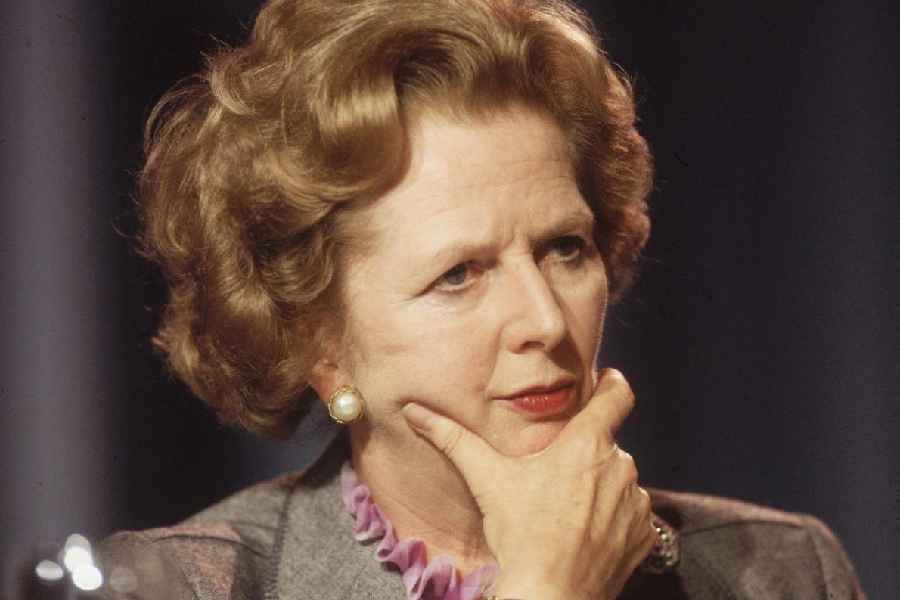Last week, among many other things, I celebrated 50 years of my lifelong encounter with the United Kingdom, particularly London. I vividly recall getting off the Air India flight to a Heathrow airport where the bathroom attendants were matronly Sikh ladies who were not cut out for such menial tasks. Since taxis were unaffordable for an impecunious Indian student, I recall carting a heavy bag from the tube station to my university accommodation in Paddington. I also vividly remember the first cup of tea I drank at a college refectory. It tasted absolutely nothing that I remotely associated with tea, and was an experience I would rather not repeat.
All said and done, the England I first encountered in end-September 1975 had, of course, seen better days. The Empire was well and truly over, but somehow social attitudes often lagged behind grim contemporary realities. There were a disproportionate number of academics who dabbled in Indian history who were unrepentant standard-bearers of the raj. It was not as if their world had collapsed with the retreat from India, Kenya, Ghana, and South Africa. There were many opportunities for the ex-colonials in Britain, and the commuter belts in Surrey, Kent and even parts of Essex were both affordable and agreeable. The BBC presenters spoke in Received Pronunciation, and it was not unusual to bump into the radicals of the 1968 generation who flaunted an upper-class drawl.
Unlike today, how you spoke determined your social status in a deeply hierarchical society. My Indian accent, shaped by an Anglican school in Calcutta and a college in Delhi that cloned an institution in Cambridge, meant immediate social acceptance, no further questions asked. I would not be exaggerating if I claimed that throughout my long stint in the campuses of London and Oxford, I didn’t ever encounter any overt racism. I can’t speak of what preyed on the minds of my White English colleagues, but if you didn’t always take life too seriously and could share the English penchant for silliness — witness how allusions to Monty Python skits still shape conversations — you were deemed kosher. “He’s a man I can fly with” was how a crusty don in Oxford divided the world.
It is difficult to determine when exactly the British lion began the evolutionary journey to becoming a pussycat. Many historians have suggested that the 1945 triumph over Hitler was a pyrrhic victory and that this should have been evident after the debacle over the Suez Canal in 1956. By the time I got to England in 1975, the economy was faltering and the manufacturing industry was veering towards a crisis. My first bank account, with Barclays Bank, had a suffix, ‘External’. It meant that I had the right to transfer funds out of the country without explanations to the bank manager. It took the advent of Margaret Thatcher in 1979 for exchange controls to be lifted.
I don’t know how exactly Thatcher is perceived today. But I clearly remember the so-called Winter of Discontent that preceded the 1979 election when Britain was confronted by the possibility of a country where everything was going wrong. I believe that Thatcher rescued Britain from a free fall. She gave the country a new direction and a sense of purpose. Yes, she exercised very harsh options that included the heartless closure of institutions that were household names. I remember the day when it was announced that Meccano would become history. Dinky Toys, something I also associated with my childhood, also marched into the sunset. At the same time, Thatcher gave a new meaning to capitalism. From a bunch of moribund status quoists, she made conservatism an intellectual force. It seemed that the decline of Britain could be arrested.
Why was the legacy of Thatcher squandered? Tony Blair will deny it but the roots of what now seems a terminal decline can be traced to the time New Labour was on the ascendant. Last week, a Conservative leader of some consequence observed that there were parts of Birmingham where it would be difficult to find a White face. His observation was debunked as ‘racist’ and unworthy of being conferred any parliamentary legitimacy. What was deliberately glossed over in the hunt for ‘respectability’ was that in private everyone knew that an awkward truth had been told. In 1968, Enoch Powell had been consigned to the fringes of political existence for alerting people to a disturbing social distortion. However, the custodians of correctness quite forgot that social peace could not be kept if the majority community felt it was either being wilfully marginalised or taken for granted. Brexit was a result of this sentiment taking hold of the national imagination.
Today, Britain is fast becoming a totally dysfunctional place where the social contract has broken down. The fear of criminal gangs being able to operate in the heart of London with impunity is a small expression of this wariness. But more significant is the political paralysis that has resulted from the inability to handle the unending stream of illegal immigrants arriving in Britain on makeshift boats. The sheer absurdity of housing these illegal entrants in luxury hotels rather than inhospitable prison camps is suddenly making people sit up and say, ‘enough is enough’.
Today, there is every possibility that a rising tide of anger will lead to the complete breakdown of the competitive politics that has endured for at least a century. The ailing Conservative Party is likely to be overwhelmed by the populist assertion around Nigel Farage’s Reform UK. If Jeremy Corbyn and his Muslim allies can get their act together, it is also likely that the Labour Party will be relegated to irrelevance. This frontal clash between two formations that have enhanced notions of political certitudes may be riveting to the outsider. The question is whether Britain has the resilience to survive such polarised politics.
A country that has become unrecognisable in the past 50 years needs divine intervention to negotiate this leg of its journey. Maybe the spirit of Dunkirk will resurface once more.









